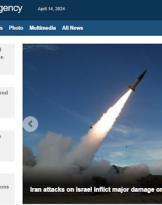There are about sixty US troops, effective at the Vicenza base, who have been placed in isolation after having been in Liberia in activities aimed at tackling the spread of Ebola.
The commander of the unit used in Africa, also in solitary confinement, said yesterday that he had returned to Vicenza, in compliance with the orders received from the US chain of command. At the same time, our health minister Beatrice Lorenzin took care to reassure the Italians and in particular the people of Vicenza about the absence of any danger for the local population.
The minister reassures, accomplishing what we could call "an act of faith" as it guarantees the possible consequences of something that it cannot manage because it is dealt with in an extra-territorial area such as a US military base on Italian territory, presumably out of control of national health authorities.
The risk of infection will also be very low considering that the military "appears" to show no signs of full-blown disease, but the doubt remains as to why Italy has accepted the American decision to return soldiers from an area to an Italian base. risk such as Liberia and not pretend instead that they spend the period of "isolation" in an equipped site on US territory. Moreover, the US protocols do not currently foresee the "quarantine" of personnel on duty coming from African areas at risk unless they have not had direct contact with people already affected by the virus, but only a separation from the context in which the staff lives and works.
It does not appear or at least it is not known whether the soldiers are staying in an aseptic area of the base, isolated from the outside and whether in the isolation phase they have no contact with other personnel assigned to their logistical support and medical checks. Therefore, a fleeting and involuntary contact with others could occur, in an initial phase of the manifestation of the disease and without it having yet been diagnosed, with a consequent transmission of the virus. All this considering that if we observe the "cases and no longer deaths, in the countries at risk the contagion would seem to worsen and by a lot with an acceleration of the epidemic. (source WHO: cases are on average 2,15 times higher and deaths are already at least 15000 - http://apps.who.int/iris/bitstream/10665/137376/1/roadmapsitrep_29Oct2014_eng.pdf?ua=1).
In Guinea between 21 and 27 October in 6 days 230 new cases were expected and 353 appeared. In Sierra Leone between 22 and 27 October in 5 days 990 new cases were expected and 1339 appeared. In Liberia in 5 days between 19 and 25 October in 6 days 1157 new cases were expected and 1860 appeared, despite the fact that for this country there is talk of a welcome but doubtful stabilization due to the clandestine funerals (cremation precludes heaven) and the fact that they are 300 dead have disappeared since the last WHO bulletin 5 days ago.
To affirm, therefore, the absence of risk in the face of predispositions against the contagion taken by the USA in the Vicenza base and not better clarified or of quarantine to be spent in a site not prepared for the purpose seems to be risky. Perplexity also confirmed by today's news that informs that a citizen of Quart (Valle d'Aosta) returning from Sierra Leone where he served in an Emergency hospital, could be placed in quarantine in his home in Quart and not in a health facility.
Therefore, talking about quarantine is not correct. The term has, in fact, ancient origins that date back to half of the 1300 when during the black plague epidemic those arriving from places at risk had to spend at least forty days "in isolated places" waiting to see if the symptoms of the plague develop. An ancient provision that in a modern key should be interpreted by providing an area-wide dislocation on the national territory of specially equipped sites, where to channel those who might be at risk of ending the disease.
The news coming from Aosta instead suggests that the Italian ministry of health is facing with great optimism a threat with connotations still not completely clear even to the international scientific community and accept to host on its territory possible "risk bearers" without even being conditions to verify the insulation conditions applied to them.
Setting up equipped sites certainly entails high economic costs. Speaking, reassuring and promising is certainly less expensive, but facing such a threat adopting simplistic solutions is dangerous.
Peace of mind is a must, but not adequately preparing to eliminate the risk of spreading the virus with high probability and guaranteeing public health in compliance with the Constitution, it is a duty that cannot be delegated or even dealt with lightly.
Fernando Termentini
(Photo: US DoD archive)












